Data Governance Service Overview
Data governance is a set of practices, policies, and procedures that organizations put in place to manage, protect, and ensure the quality and integrity of their data assets. It involves defining roles and responsibilities, establishing rules and standards for data management, and implementing processes for data collection, storage, usage, and sharing. The primary goals of data governance are to:
Data Quality
Ensure that data is accurate, reliable, and consistent, thereby improving decision-making and business operations.
Data Security
Protect sensitive and confidential data from unauthorized access, breaches, and misuse.
Compliance
Ensure that data management practices align with relevant laws and regulations, such as GDPR, HIPAA, or industry-specific standards.
Data Access
Define who has access to what data and under what conditions, balancing the need for data availability with security and privacy concerns.
Data Accountability
Assign clear ownership and responsibility for data assets, making individuals or teams accountable for data-related actions.
Data Documentation
Create metadata, data dictionaries, and documentation that describe data elements, their meaning, and usage.
Data Lifecycle Management
Manage data throughout its lifecycle, from creation and storage to archiving and disposal.
Data Integration
Ensure that data is integrated across different systems and applications to provide a unified view of information.
Data Privacy
Protect the privacy of individuals by managing and securing personal data appropriately.
Data Retention
Define data retention policies to determine how long data should be kept and when it should be deleted.
Implementing data governance in your enterprise can provide several benefits:
Data governance helps mitigate risks associated with data breaches, non-compliance with regulations, and data-related errors or inconsistencies.
By managing data more efficiently and avoiding data quality issues, you can reduce costs associated with data management and correction.
Customers, partners, and stakeholders are more likely to trust your organization with their data when you have strong data governance practices in place.
It ensures that your organization complies with data protection laws and industry regulations, reducing the risk of legal issues and fines.
Properly managed data can be leveraged for new revenue streams or business opportunities, such as data analytics and partnerships.
High-quality, reliable data leads to better decision-making and insights, enhancing the efficiency and effectiveness of your organization's operations.
Streamlined data processes, better data integration, and clear data ownership lead to more efficient data operations.
Data governance fosters a data-driven culture within your organization, encouraging employees to make decisions based on data rather than intuition.
In summary, implementing data governance in your enterprise is essential for ensuring data quality, security, compliance, and effective data management. It helps your organization harness the full potential of its data assets while minimizing risks and maximizing the value of data-driven decision-making.


